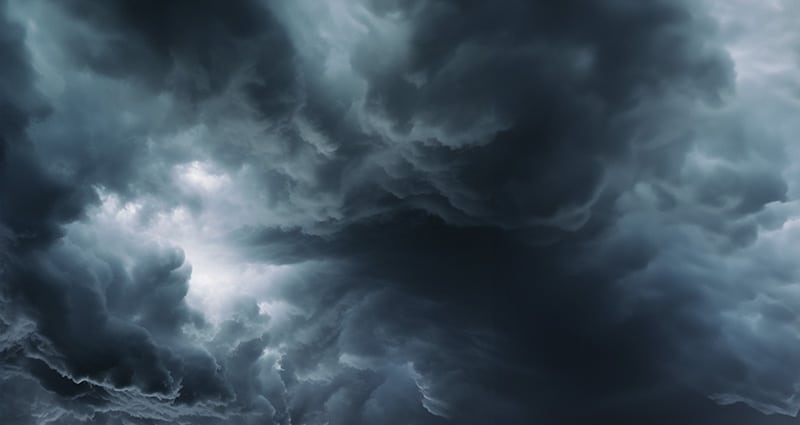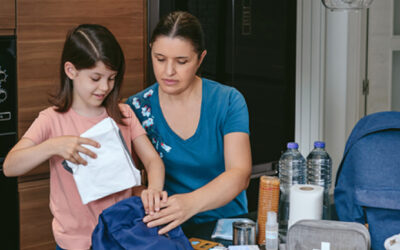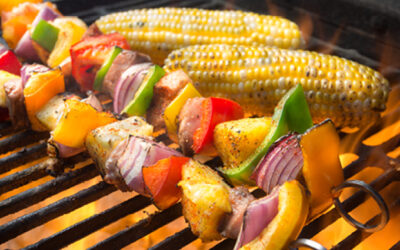Heat, traffic accidents, carbon monoxide poisoning and clean-up injuries; There are a lot of potential traumas surrounding cleanup after a storm like we just experienced with Hurricane Ida. We spoke with Dr. Mark Laperouse, medical director of emergency services at Our Lady of the Lake, about steps you can take to keep yourself and your family safe during storm recovery.
Carbon Monoxide Poisoning
When so many are without power, many of us will turn to generators to keep our food fresh and the house cool. The main risk the health system has noticed so far is carbon monoxide poisoning, and we have already treated more than a dozen patients.
Generators must be outside because they release carbon monoxide. Otherwise, it’s like staying in a closed garage with a car that’s running. It’s also very important to keep generators away from the house and away from windows. If a generator is running near a window air conditioner, the AC will pull in the exhaust and push the carbon monoxide into the house.
Symptoms of this type of poisoning are not always obvious, but typically start with a headache, lightheadedness, dizziness, nausea and vomiting. People experiencing this can get significantly confused. Delayed treatment can lead to long-term cognitive effects. Time is of the essence, and the earlier the symptoms can be recognized the better, so the patient can get on supplemental oxygen as soon as possible.
Traffic Accidents
Drivers must always be on high alert and eliminate distractions like phone use, but that’s especially true during storm recovery when the rules of the road may be slightly different than we’re used to.
When the power is out, stoplights also don’t work, and that means intersections become four-way stops. Drivers who barrel through intersections as normal are getting into car wrecks.
After a storm, traffic patterns are different as people are moving around at different times and on different routes than they’re used to. Some drivers are towing trailers with debris or salvaged belongings from homes, and there’s always a risk that something can fly off the back of a trailer if it wasn’t secured well. Keep yourself, your passengers and other drivers safer by remaining on super-high alert while you drive.
Injuries During Clean-up
Debris and fallen limbs need to be cleared and picked up, but clean-up must be done safely. Climbing on a ladder to access a roof must, at a bare minimum, include a second person to stabilize the ladder and minimize the risk of falling. When professionals do roof clean-up, they will use recommended harnesses and other safety checks. Those who are elderly and/or on blood thinners are especially cautioned against climbing on ladders at all, because it’s a very high-risk activity for them.
Fallen branches often need to be broken down into smaller logs for pick-up. Using a chain saw, which is very dangerous machinery, should only be done by people who have received instruction on its proper use. Always use appropriate protective mechanisms such as eye shields and gloves. Keep other people away from the chain saw and whatever is being sawed should it fall or snap.
In the unfortunate circumstance that you do injure yourself and are bleeding profusely, put a tourniquet above the spot that’s bleeding to slow the flow of blood and seek professional, emergency medical aid immedieatly.
Dehydration and Heat-related Illness
Working in the heat without access to cooling breaks while the power is out can also be risky. Take frequent breaks and drink lots and lots of fluids, more than you think you need. Try to do the work in the morning or evening when it’s a little cooler, and rest during the hottest parts of the day.
When you’re without power you’re also sleeping in the heat, which means you’re getting dehydrated while you sleep. Sweating without rehydrating puts you at risk of dehydration and heat-related illnesses. A key indicator is the color of your urine. If it’s dark yellow or brown, you’re severely dehydrated and need rest and to drink more fluids. If you’re not peeing at all, that’s a bigger concern. Significant muscle cramping, shortness of breath and chest pain are other signs or symptoms of heat-related illnesses.




